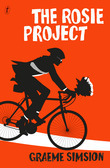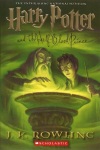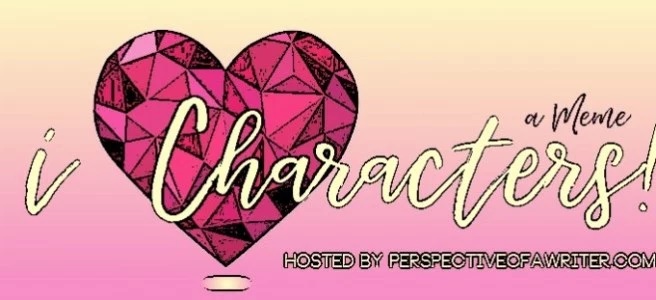This week’s theme for the I Heart Characters! meme is brainiacs, who could show that by being sly, clever, book smart, etc. As I thought about the characters who could be brainiacs, I remembered the the theory of multiple intelligences.
Multiple Intelligences Oasis says Howard Gardner is a psychologist and Harvard Professor who developed the theory of multiple intelligences in the 1970s and 1980s (“About” par. 3-4). According to this site, the theory of multiple intelligences criticizes the idea that “there is a single intelligence, adequately measured by IQ or other short answer tests” and instead claims that humans have multiple intellectual capacities, of which the IQ test measures only one or two of those capacities (“About” par. 1).
At the moment, there are nine recognized intelligences in Gardner’s theory. Eve Herndon, from Lifelong Learning Matters at Cornerstone University, describes the types in this simplified manner, though not in this order:
- Naturalistic intelligence: “The ability to recognize and categorize plants, animals and other objects in nature.”
- Musical intelligence: “The ability to produce and appreciate rhythm, pitch and timbre.”
- Logical-mathematical intelligence: “The ability to think conceptually and abstractly, and the capacity to discern logical or numerical patterns.”
- Interpersonal intelligence: “The capacity to detect and respond appropriately to the moods, motivations and desires of others.”
- Bodily-kinesthetic intelligence: “The ability to control one’s body movements and to handle objects skillfully.”
- Linguistic intelligence: “Well-developed verbal skills and sensitivity to the sounds, meanings and rhythms of words.”
- Intrapersonal intelligence: “The capacity to be self-aware and in tune with inner feelings, values, beliefs and thinking processes.”
- Spatial intelligence: “The capacity to think in images and pictures, to visualize accurately and abstractly.”
- Existential intelligence: “The sensitivity and capacity to tackle deep questions about human existence, such as the meaning of life, why we die and how we got here.” (par. 10)
With these intelligences in mind, I matched them to characters I’ve found in books, movies and TV shows.
Naturalistic Intelligence – Laurel
 In Wings and Spells by Aprilynne Pike, Laurel is an Fall faerie (she doesn’t know that for most of the first book) raised in the human world for the purpose of ensuring that one of the gateways to Avalon doesn’t fall into evil hands. She, as an Fall faerie, was selected because she would have an inborn sense of the plants that could harm or heal her, so she wouldn’t die prematurely. (Ironically, faeries in this universe are also plants.) Later on in the series, she starts honing her skills mostly for her own protection. I never finished the series, so I don’t know how she turns out. Her skills with plants, though, qualifies her as a character who demonstrates naturalistic intelligence.
In Wings and Spells by Aprilynne Pike, Laurel is an Fall faerie (she doesn’t know that for most of the first book) raised in the human world for the purpose of ensuring that one of the gateways to Avalon doesn’t fall into evil hands. She, as an Fall faerie, was selected because she would have an inborn sense of the plants that could harm or heal her, so she wouldn’t die prematurely. (Ironically, faeries in this universe are also plants.) Later on in the series, she starts honing her skills mostly for her own protection. I never finished the series, so I don’t know how she turns out. Her skills with plants, though, qualifies her as a character who demonstrates naturalistic intelligence.
Musical Intelligence – Elisabeth
 The Elisabeth I’m thinking of is the one in Wintersong by S. Jae-Jones. Her family generally has good musical talent, and it helps keep the inn afloat. Sadly, her father only invests in the musical talents of her brother Josef since he is the heir. After she marries the Goblin King, she starts composing music in earnest, and it’s all inspired by her husband. There’s a life to it. While it’s suggested that she starts sending her music into the great wide world, the sequel goes full force into having her unique music delight the world.
The Elisabeth I’m thinking of is the one in Wintersong by S. Jae-Jones. Her family generally has good musical talent, and it helps keep the inn afloat. Sadly, her father only invests in the musical talents of her brother Josef since he is the heir. After she marries the Goblin King, she starts composing music in earnest, and it’s all inspired by her husband. There’s a life to it. While it’s suggested that she starts sending her music into the great wide world, the sequel goes full force into having her unique music delight the world.
Logical-Mathematical Intelligence – Don Tillman
 The general plot of The Rosie Project, by Graeme Simsion, describes the type of logic Don has to use to determine who Rosie’s father is. They first use logic to narrow down who the potential pool of fathers are from what Rosie’s mother told her, and then they execute a crazy plan to get DNA samples for him to test in the lab he has access to at his university. He also can account for a change in plans when problems arise. What impresses me more is that he has a very exacting diet planned out for the week, and he knows exactly what he has to change when dinner plans change his diet. He plans a date for himself and Rosie where he makes lobster. He knows exactly how much lobster fits his apparently perfect diet. Then he realizes with certain cooking restrictions that he would have to eat the whole thing, so he alters his plan for the next day or two to accommodate the extra type of nutrients. He also gets very exacting about specialty drink recipes.
The general plot of The Rosie Project, by Graeme Simsion, describes the type of logic Don has to use to determine who Rosie’s father is. They first use logic to narrow down who the potential pool of fathers are from what Rosie’s mother told her, and then they execute a crazy plan to get DNA samples for him to test in the lab he has access to at his university. He also can account for a change in plans when problems arise. What impresses me more is that he has a very exacting diet planned out for the week, and he knows exactly what he has to change when dinner plans change his diet. He plans a date for himself and Rosie where he makes lobster. He knows exactly how much lobster fits his apparently perfect diet. Then he realizes with certain cooking restrictions that he would have to eat the whole thing, so he alters his plan for the next day or two to accommodate the extra type of nutrients. He also gets very exacting about specialty drink recipes.
Interpersonal Intelligence – Ruth Patchett

This one was difficult because I can think of many characters who have this type of intelligence. The character I choose is the more manipulative type of interpersonal intelligence. She is Ruth Patchett from She-Devil (1989). She is a housewife who reads romance novels by Mary Fisher and tries to please her accountant husband. After attending a party, her husband starts cheating on her with said romance author and moves in with her. Ruth assumes a new identity as Vesta Rose to take away her cheating husband’s four basic assets: his home, family, career, and freedom. She knows her husband well enough to know how he will behave as she puts her plans in motion. She also knows how to manipulate the women around her, like Mary Fisher’s mother, a butler, and her supervisor-turned-friend, Cooper. She uses all of these people very effectively to know how they operate and how to ruin her husband’s life. Bonus: it ruins Mary Fisher’s life too! She succeeds in her revenge.
Bodily-Kinesthetic Intelligence – Claire Robbins

I went for following the dance example of this type of intelligence. Claire Robbins is a ballerina in Starz’s miniseries Flesh and Bone. She learns very quickly what she must do. Her character deals fairly well with the tense environment, whether it’s with choreographers who have different inspirations or with her family problems. On the point of choreography, she and the other ballerinas have to balance between the hired choreographer for this performance and the exacting regular one who is controlling. There is also a point in the show where she joins a strip club and applies her dance skills to that.
Linguistic Intelligence – Yi Tien Cho
 When I binged on Season 3 of Outlander earlier this year, I was moved by Yi Tien Cho’s words when their ship couldn’t catch any wind. Yi Tien Cho is a Mandarin man that Jamie Fraser saves and befriends while Claire is in the future raising their daughter. Season 3 requires them to get on a ship to rescue Jamie’s nephew, and mutiny is nearly afoot when too many days pass without wind to move the ship. When everyone tries to throw a drunk man overboard, Yi Tien Cho shares his life story about his being a once famous poet and why he left China. This story captivates everyone on board (and me). Then when he throws the writing into the sea, the sails catch wind again. His words moved the crew, the passengers and whichever god controls the wind at sea.
When I binged on Season 3 of Outlander earlier this year, I was moved by Yi Tien Cho’s words when their ship couldn’t catch any wind. Yi Tien Cho is a Mandarin man that Jamie Fraser saves and befriends while Claire is in the future raising their daughter. Season 3 requires them to get on a ship to rescue Jamie’s nephew, and mutiny is nearly afoot when too many days pass without wind to move the ship. When everyone tries to throw a drunk man overboard, Yi Tien Cho shares his life story about his being a once famous poet and why he left China. This story captivates everyone on board (and me). Then when he throws the writing into the sea, the sails catch wind again. His words moved the crew, the passengers and whichever god controls the wind at sea.
Intrapersonal Intelligence – Cathleen Harris

Unlike interpersonal intelligence, I had a harder time classifying a character who clearly had high intrapersonal intelligence. Arguably, any person who writes an autobiography or their own memoir shows intrapersonal intelligence in the character that represents themselves, but I wanted to select a fictional character. I chose Cathleen Harris from Novitiate (2017), a movie about the effect of Vatican II on an order of nuns. We see the Mother Superior, the Postulant Mistress, and a handful of the Postulants who become Novitiates be very introspective in the movie. From the beginning, Cathleen seems the type to blend in perfectly into this stricter order, and no one doubts that she would make it through all of her vows. Everyone questions themselves and their spirituality, but we eventually see Cathleen wants something specific—comfort. The movie even ends with her saying, “I want something more.” She learns more about herself by trying to become a nun and figures out what she wants. She has intrapersonal intelligence.
Spatial Intelligence – Eliza Mirk / LadyConstellation
 I suppose it’s obvious to pick an artist, but I love Eliza Mirk, a.k.a. LadyConstellation, from Eliza and Her Monsters by Francesca Zappia. Through the course of the novel, she is the author of a widely popular webcomic called Monstrous Sea., though not many people know exactly who she is through most of the novel. She is always drawing her characters and working on her webcomic; she’s always improving her art form. It’s to our benefit that we get to see snippets of Monstrous Sea in Zappia’s novel. She’s also appreciative of the fanart, Wallace’s translation of her webcomic into novel form, and the cosplay of her characters.
I suppose it’s obvious to pick an artist, but I love Eliza Mirk, a.k.a. LadyConstellation, from Eliza and Her Monsters by Francesca Zappia. Through the course of the novel, she is the author of a widely popular webcomic called Monstrous Sea., though not many people know exactly who she is through most of the novel. She is always drawing her characters and working on her webcomic; she’s always improving her art form. It’s to our benefit that we get to see snippets of Monstrous Sea in Zappia’s novel. She’s also appreciative of the fanart, Wallace’s translation of her webcomic into novel form, and the cosplay of her characters.
Existential Intelligence – Albus Dumbledore
 I wanted to avoid using Harry Potter characters, but the first person who comes to mind for existential intelligence is Albus Dumbledore. I might be leaning too much on his character being a mentor for the Chosen One, but his character does ask and try to answer existential questions. He has thought about death to the extent that he saw it as “the next great adventure.” He has also pondered about evil: who is evil, why they are evil, and who has the potential for it. It helps that the Harry Potter series does make you think about the nature of death and evil.
I wanted to avoid using Harry Potter characters, but the first person who comes to mind for existential intelligence is Albus Dumbledore. I might be leaning too much on his character being a mentor for the Chosen One, but his character does ask and try to answer existential questions. He has thought about death to the extent that he saw it as “the next great adventure.” He has also pondered about evil: who is evil, why they are evil, and who has the potential for it. It helps that the Harry Potter series does make you think about the nature of death and evil.
Which characters would you match to these nine types of intelligence?

The I Heart Characters! Meme is hosted by Dani @ Perspective of a Writer. This was started for book bloggers to share their love of characters. If you would like to know the upcoming prompts, follow the link to her blog.
Further Reading on Multiple Intelligences
- Mark Vital’s “9 Types of Intelligence” on Adioma
- Northern Illinois University’s PDF: “Howard Gardner’s Theory of Multiple Intelligences”
- University of California, Riverside’s PDF “The Nine Different Types of Intelligence”
Works Cited
“About.” Multiple Intelligences Oasis, n.d., www.multipleintelligencesoasis.org/about/. Accessed 3 Aug. 2018.
Herndon, Eve. “What Are Multiple Intelligences and How Do They Affect Learning?” Lifelong Learning Matters, Cornerstone University, 6 Feb. 2018, www.cornerstone.edu/blogs/lifelong-learning-matters/post/what-are-multiple-intelligences-and-how-do-they-affect-learning.

Oh wow! You made it so interesting! And yes all forms of intelligence are really important if you only have one you lack something boviously.
LikeLiked by 2 people
I love this! Actually my writing partner is very into the different intelligences so when we created out characters we pondered different types of thinking and how that would apply to how our characters act… It’s so fascinating and I LOVE that you searched out different characters to feature for each one! I’m reading Wintersong right now so I can heartedly agree with you about her. And Yi Tien Cho totally fascinates me from what you mentioned about him! I would love to watch Outlander but unfortunately I don’t have cable 😦 Eliza was another great choice! I love artists types! I think Starfish would be another great choice for spacial. And Albus Dumbledore! Yoda actually would work too! Someone features him on mentor week and I just loved it! ❤️ This was an absolutely incredible post Carrie!
LikeLiked by 1 person
Wooooow! That was a very creative and interesting way of making this topic. Great job!
LikeLiked by 1 person
I love that you picked one character for each type of intelligence (and that Dumbledore made your list!). Great interpretation of the prompt 🙂
LikeLiked by 1 person
WoW! That was amazing! I feel my post was so lacking now. Next week I must step up my game! The challenge for myself is on now!
Here is my post for yesterday: https://woabookreviews.wordpress.com/2018/08/09/i-heart-characters-week-1/
LikeLiked by 1 person
What a fun idea for a post. I think you chose really well for each of these!
LikeLiked by 1 person